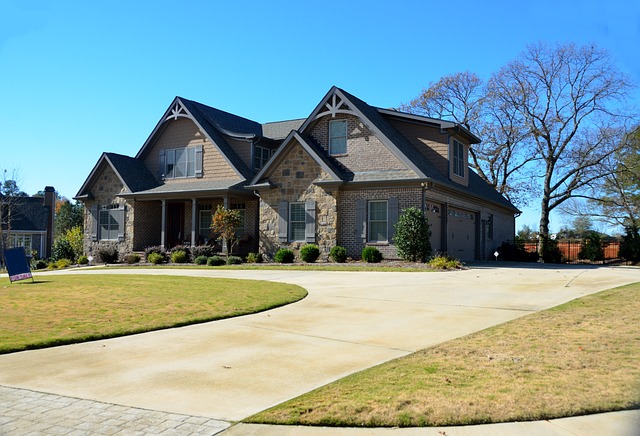When considering the purchase of a Bukit Batok Executive Condominium (EC), it's important for buyers to understand their rights and responsibilities, including the Lease Decay Clause that affects the property's long-term value after the Minimum Occupation Period (MOP). Homeowners in an EC must also be aware of strata title laws and engage actively in maintenance and management to preserve the community's value and living standards. For those looking to upgrade from a Bukit Batok EC to a Private Condominium, it's crucial to familiarize oneself with the eligibility criteria, financial assistance options like the CPF Housing Grant (CHG), and the specific regulations governing private condos. The process of upgrading involves complex legal considerations and should be approached with thorough research and professional advice to ensure a smooth transition and adherence to new housing rules.
Exploring the legal nuances of Executive Condominiums (ECs) within the vibrant locale of Bukit Batok, this article demystifies the unique status and ownership structure of ECs in Singapore. From eligibility criteria to contractual rights, we delve into the intricacies of purchasing an EC, emphasizing the specific legal framework applicable to these properties. Understanding the implications of lease decay on resale and en-bloc potential, and managing maintenance through strata titles are crucial steps for EC residents to maintain their homes’ value and condition. Additionally, insight is provided into the process of upgrading from an EC to a private condo, ensuring a clear understanding of the legal transition pathway in Singapore. This comprehensive guide is tailored to assist both current and prospective Bukit Batok EC owners navigate these considerations with confidence.
- Understanding Executive Condominiums (ECs) in Singapore: A Focus on Bukit Batok EC Projects
- The Legal Framework Governing Executive Condos in Singapore
- Eligibility Criteria for Purchasing an Executive Condo in Bukit Batok
- Contractual Obligations and Rights of Buyers in Bukit Batok ECs
- The Lease Decay Clause: Implications for Resale and En-bloc Sales in Bukit Batok ECs
- Maintenance, Management, and Strata Titles: Keeping Your Bukit Batok EC in Prime Condition
- Upgrading from an Executive Condo to a Private Condo: The Legal Transition Process in Singapore
Understanding Executive Condominiums (ECs) in Singapore: A Focus on Bukit Batok EC Projects

Executive Condominiums (ECs) in Singapore serve as a housing option that bridges the gap between public and private housing. They offer the benefits of both, such as eligibility for subsidies like the CPF Housing Grant for first-timer families and the opportunity to upgrade to private property after a certain period without selling the EC. The Bukit Batok EC projects stand out as significant developments within this category. These projects are designed to cater to the needs of individuals and families looking for a comfortable living space with the potential for appreciation in value, making them an attractive proposition for investors and homeowners alike.
In the vibrant town of Bukit Batok, these ECs are strategically situated to provide residents with convenient access to amenities, transportation networks, and local attractions. The Bukit Batok EC projects are characterized by their thoughtful design, incorporating a blend of greenery and modern living spaces. Prospective buyers considering Bukit Batok ECs should be aware of the eligibility criteria, which include being Singapore citizens or permanent residents, as well as income ceilings. Additionally, it’s crucial to understand the resale conditions after the mandatory five-year minimum occupation period, which differ from traditional HDB flats and private condominiums. These legal considerations ensure that buyers make an informed decision aligning with their long-term housing goals.
The Legal Framework Governing Executive Condos in Singapore

In Singapore, Executive Condominiums (ECs) like those in the Bukit Batok area serve as a housing option for both singles and families who do not qualify for public housing yet. These ECs are subject to specific legal frameworks that govern their sale, eligibility, and ownership, which are distinct from those applying to private condominiums and Housing & Development Board (HDB) flats. The legal framework is established under the provisions of the Housing & Development Act, where an EC is defined as a hybrid housing model designed for Singaporeans who aspire to upgrade from public housing to a private property within a certain period. Notably, the eligibility criteria for purchasing an EC have been tailored to ensure that these units remain accessible to first-time homeowners while preventing speculative buying. The legal guidelines also cover the duration during which an EC can only be sold back to the state, typically after a set number of years, at which point it becomes a private condominium. Additionally, the Singaporean government has set out clear rules regarding the minimum occupation period before an EC unit can be sold on the open market, ensuring a stable and predictable property market for all stakeholders. These legal considerations are crucial for potential buyers to understand, as they affect the long-term value and resale prospects of EC units, particularly in sought-after developments like Bukit Batok EC. Prospective buyers must familiarize themselves with these legal aspects to make informed decisions about their property investments.
Eligibility Criteria for Purchasing an Executive Condo in Bukit Batok

prospective homeowners considering an Executive Condo (EC) in Bukit Batok should be well-versed with the eligibility criteria set forth by the Singapore government. Unlike traditional public housing, ECs are designed for young couples or families who aspire to own a larger and more comfortable home while still being able to sell the unit on the open market when meeting the necessary criteria at a later stage. To purchase an EC in Bukit Batok EC, applicants must meet the following conditions: they must be Singaporean citizens, at least one applicant must not currently own or have an outstanding flat owned with a spouse/all adult family members; their monthly household income should not exceed S$14,000; and they have not previously taken flat from the Housing & Development Board (HDB). Additionally, applicants must fulfill the occupancy requirement for a minimum of 5 years before they can sell the EC on the open market. Understanding these eligibility criteria is crucial for individuals or families interested in Bukit Batok ECs, as they ensure a smooth application process and compliance with housing policies in Singapore. Prospective buyers should also be aware that the criteria can change, so it’s advisable to refer to the latest guidelines from the HDB or CPG (Corporate Planning Group) before making any decisions.
Contractual Obligations and Rights of Buyers in Bukit Batok ECs

When purchasing an Executive Condominium (EC) in Bukit Batok, buyers must be well-versed with the contractual obligations and rights that govern such transactions. These ECs, which offer a blend of public and private housing, come with specific conditions that differ from traditional condos or HDB flats. Prospective buyers should meticulously review the Sale and Purchase Agreement (SPA) to fully understand their commitments. This document outlines the terms under which the property is transferred, including payment schedules, penalties for late payments, and the responsibilities of both the developer and the buyer post-purchase.
Buyers in Bukit Batok ECs have distinct rights enshrined within these contracts. They are entitled to a cooling-off period where they can terminate the sale without penalty, provided they inform the developer within the stipulated timeframe. Additionally, buyers have the right to inspect the unit before completion and may request for rectification of any defects within a prescribed period after taking over the keys. It is imperative that buyers in Bukit Batok ECs are aware of their entitlements under the Building Maintenance and Strata Management Act as well, which covers the maintenance and management of the development post-completion. Understanding these legal considerations ensures that buyers are equipped to navigate the purchase process with confidence and clarity.
The Lease Decay Clause: Implications for Resale and En-bloc Sales in Bukit Batok ECs

When considering the purchase of an Executive Condominium (EC) in Bukit Batok, understanding the implications of the Lease Decay Clause is paramount for both resale and en-bloc sales scenarios. This clause is a critical aspect of the Minimum Occupation Period (MOP) stipulated in the lease agreement for ECs, which are hybrid housing designed for couples with at least one Singaporean citizen. The Lease Decay Clause dictates that after the MOP has lapsed, if the unit has not been occupied for a continuous period of three months, the remaining lease will decay each year by a set percentage until it reaches a minimum length as specified in the original lease agreement. This decay clause directly affects the market value of the unit and can make a significant difference during resale, as potential buyers will take into account the remaining lease length and its decay over time. For instance, if an EC is sold within the MOP, the remaining lease is typically reduced by 15% each year post-MOP. This reduction can render the property less attractive to buyers who are looking for longer lease terms, potentially affecting the resale price.
Moreover, when an en-bloc sale of a Bukit Batok EC is on the horizon, the Lease Decay Clause becomes even more relevant. The collective sale process requires the agreement of a majority of unit owners and is subject to various conditions, including the remaining lease length. A decaying lease can complicate the en-bloc sales process by making it less attractive to developers due to the reduced potential for future development or redevelopment. This can lead to lower bids or even hinder the sale if the remaining lease falls below the threshold deemed viable by developers. Therefore, owners of ECs in Bukit Batok must be well-informed about this clause and its effects on both resale value and en-bloc potential, ensuring they make informed decisions regarding their property’s future.
Maintenance, Management, and Strata Titles: Keeping Your Bukit Batok EC in Prime Condition

Navigating the maintenance, management, and strata titles for a Bukit Batok Executive Condominium (EC) is crucial for preserving its prime condition. Homeowners in Bukit Batok EC must be well-versed in these aspects to ensure their property retains its value and remains a comfortable living space. The Strata Titles Board plays a pivotal role in overseeing the strata titling process, which allows individual unit owners to co-own common properties while owning their units outright. This structure is essential for effective maintenance and management of the EC.
The management of a Bukit Batok EC requires active participation from its residents. A dedicated management committee or professional managing agent should be in place to handle day-to-day operations, enforce by-laws, and oversee maintenance schedules. Regular inspections and timely repairs are key to addressing issues before they escalate. Homeowners must stay informed about their responsibilities, contribute to the collective decision-making process, and adhere to the EC’s guidelines to maintain a harmonious living environment. By doing so, your Bukit Batok EC will not only retain its prime condition but also serve as a model for community living.
Upgrading from an Executive Condo to a Private Condo: The Legal Transition Process in Singapore

In Singapore, the transition from residing in an Executive Condominium (EC) to a Private Condominium involves a clear understanding of the legal framework and procedures that govern such a move. Executive Condos are hybrid housing designed for couples who meet specific eligibility criteria, offering them a chance to live in a larger space than a public flat, with the option to sell their unit on the open market after fulfilling certain conditions, typically a minimum of 5 years from the date of acquisition. As Bukit Batok EC stands as a prime example of such housing developments, potential upgraders should be aware that upon meeting the requisite criteria—such as income ceilings and having fulfilled the minimum occupancy period—residents can apply to the relevant authorities for an upgrading option. This process, facilitated by the CPF Housing Grant (CHG), ensures financial assistance for eligible applicants, making the transition more feasible. The legal transition from an EC to a Private Condo involves submitting the necessary documents and fulfilling any outstanding payments or obligations associated with the EC unit. It is imperative to engage with legal professionals or consult the Singaporean government’s housing boards for precise guidance tailored to individual circumstances, as the process can be intricate and varies depending on each case.
Post-upgrading, owners must adhere to the stipulations of owning a Private Condo, which differ from those of an EC. These include restrictions on subletting, and rules on the usage of the CPF funds for payment. The process of upgrading is not only a financial decision but also one that involves careful consideration of the legal implications and long-term commitments. In Bukit Batok, as with other regions in Singapore, the infrastructure and regulations are in place to facilitate a smooth transition for residents looking to upgrade their living quarters. Prospective upgraders should thoroughly review the guidelines provided by the Housing & Development Board (HDB) and the Urban Redevelopment Authority (URA), along with seeking professional advice, to ensure compliance with all legal requirements throughout this significant life step.



